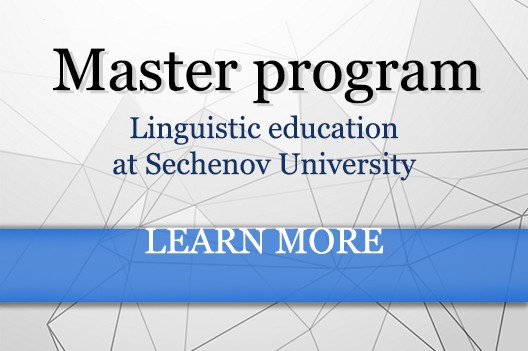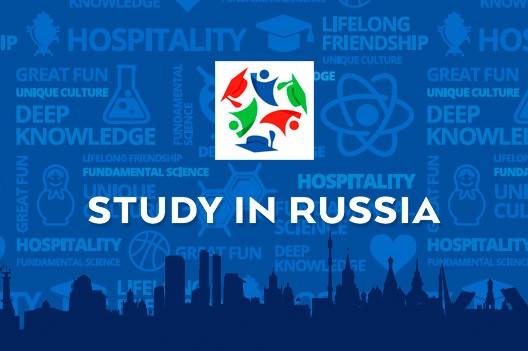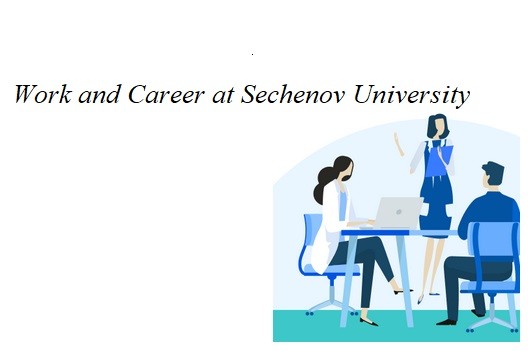-
About University
- Mission & Brand Strategy
- University Leadership
- Rector's Welcome
- History
- Regulatory Documents
- Contacts
- Staff
- International Recruitment
- Partners
Applicants- Why Sechenov University
- Degree Programmes in English
- Preparatory Training
- Non-Degree Programmes
- Transfer from other Institutions
- FAQs
17.12.2021QS SFS Medicine at Sechenov University: results
On 14–16 December, Sechenov University has hosted the QS Subject Focus Summit Medicine 2021. The English-language online event was co-organised in partnership with the consultancy firm QS Quacquarelli Symonds.
We are proud to have brought together a line-up of outstanding speakers from across the world, ranging from medical school managers to industry stakeholders and from university staff to government officials.
The theme of the summit was “Barriers Come Down: Exploring a New Paradigm in Medical Education, Research, and Healthcare.”
The agenda of the summit was divided into three tracks:
Track 1. Medicine: Challenges, Vision, and Future
Track 2. Reimagining Global Healthcare
Track 3. Digitalisation and Humanities in Medical Research, Education, and Healthcare
Petr Glybochko, Rector of Sechenov University, kicked off the summit with a welcome address.
“Global changes which have occurred since the COVID-19 pandemic started directly affect many aspects of our lives. Medical education, medical research, and healthcare have undergone transformations in the first place. The COVID-19 pandemic made us rethink our approaches to the functioning of all sectors of global healthcare. International co-operation is as important as ever because we need to exchange the experience and look for effective solutions. This is why we have decided to transform this summit into a global communication platform,” said Petr Glybochko.
Mikhail Murashko, Minister of Health of the Russian Federation, spoke at the opening ceremony. He noted the changes in the regulation of medicine, in particular the revision of the registration procedures for medical products, citing as an example the situation with medical devices. While the standard registration may take 50 to 180 days, the fast track route approved by the Russian Government takes only 5 to 11 days.
Mikhail Murashko praised the digitalisation of Russian healthcare, saying that the “level of using IT in healthcare management achieved before the pandemic made it possible to create a digital registry of COVID-19 cases within a very short space of time.”
The Minister added that the digital transformation of medical education facilitated COVID-19 training of more than 1.5 million medical workers in Russia.
In conclusion, Mikhail Murashko urged everyone to get vaccinated.
Malcolm Grant, Chancellor of the University of York (UK) and Former Chair of NHS England, described the overall situation with COVID-19 as terrible, pointing at the huge death toll and “clumsy interaction between healthcare and economy.” He also said that in the short term the world would have to face new variants like Omicron, and in the medium term — the long COVID and exhaustion of medical workers. Malcolm Grant added that AI in medicine should be a game changer. He also described the progress with genomics integration into clinical medicine, including cancer screening.
Andrey Svistunov, First Vice-Rector of Sechenov University, talked about the transformation into a research university of life sciences. This is achieved, for example, through new educational programmes aimed at training interdisciplinary specialists — which is not at all typical for Russian medical schools. Andrey Svistunov also said that big data medicine, personalised medicine, and IT should be prioritised.
Natasha Azzopardi-Muscat, Director of the Division of Country Health Policies and Systems (Europe) at the WHO, pointed at the total number of COVID-related deaths in the European region (almost 1.4 million people) and said that “in some countries the pandemic was regretfully politicised,” while there was also a “general undermining of the scientific data.” Natasha Azzopardi-Muscat called for strengthening the healthcare with adequate funding and investing into future leaders of public health.
Oleg Salagay, Deputy Minister of Health of the Russian Federation, spoke about the negative effect of the pandemic on the consumption of alcohol and tobacco in Russia. The people also became less active physically, while the anxiety levels increased. However, he noted that more people started caring about their health.
Kirill Kaem, Senior Vice-President for Innovations at Skolkovo Foundation, discussed the Russian MedTech sector. He mentioned that the country exported CT scanners and ventilators and praised national software developers who produced high-quality AI applications for medicine.
Piero Olliaro, Professor of Poverty Related Infectious Diseases at the University of Oxford (UK) and Director of Science at the ISARIC Global Support Centre, spoke about neglected diseases. He said that there was no market for medications and vaccines if the disease (like plague and Ebola) could be encountered only in poor countries. According to Piero Olliaro, “if we think of healthcare as a business, we can’t go very far.”
Janet Diaz, Network Leader of the Case Management Team at the WHO Health Emergencies Programme, called for making informed decisions based on scientific evidence and stressed the need for fast data collection and analysis in real time, especially with the threats like new variants of concern such as Omicron.
Irina Markovina, Director of the Institute of Linguistics and Intercultural Communication at Sechenov University, and Jonathan McFarland, Senior Lecturer at the Institute of Linguistics and Intercultural Communication at Sechenov University, discussed digitalisation and Humanities in medical education. They noted that even before the pandemic, their educational programmes had been enjoying the benefits of online options, while the Medical Humanities course continued to attract students from all over the world providing an excellent opportunity to improve communication skills.
At the closing ceremony of the summit, Denis Butnaru, Vice-Rector for Research of Sechenov University, thanked the speakers and participants. “The wide range of topics covered by the speakers, from MedTech to the role of Humanities in medicine, demonstrates the importance of cross-sectoral co-operation and research for the global healthcare,” said Denis Butnaru.
Embed on website
QS SFS Medicine at Sechenov University: results
On 14–16 December, Sechenov University has hosted the QS Subject Focus Summit Medicine 2021. The English-language online event was co-organised in partnership with the consultancy firm QS Quacquarelli Symonds.
We are proud to have brought together a line-up of outstanding speakers from across the world, ranging from medical school managers to industry stakeholders and from university staff to government officials.
The theme of the summit was “Barriers Come Down: Exploring a New Paradigm in Medical Education, Research, and Healthcare.”
The agenda of the summit was divided into three tracks:
Track 1. Medicine: Challenges, Vision, and Future
Track 2. Reimagining Global Healthcare
Track 3. Digitalisation and Humanities in Medical Research, Education, and Healthcare
Petr Glybochko, Rector of Sechenov University, kicked off the summit with a welcome address.
“Global changes which have occurred since the COVID-19 pandemic started directly affect many aspects of our lives. Medical education, medical research, and healthcare have undergone transformations in the first place. The COVID-19 pandemic made us rethink our approaches to the functioning of all sectors of global healthcare. International co-operation is as important as ever because we need to exchange the experience and look for effective solutions. This is why we have decided to transform this summit into a global communication platform,” said Petr Glybochko.
Mikhail Murashko, Minister of Health of the Russian Federation, spoke at the opening ceremony. He noted the changes in the regulation of medicine, in particular the revision of the registration procedures for medical products, citing as an example the situation with medical devices. While the standard registration may take 50 to 180 days, the fast track route approved by the Russian Government takes only 5 to 11 days.
Mikhail Murashko praised the digitalisation of Russian healthcare, saying that the “level of using IT in healthcare management achieved before the pandemic made it possible to create a digital registry of COVID-19 cases within a very short space of time.”
The Minister added that the digital transformation of medical education facilitated COVID-19 training of more than 1.5 million medical workers in Russia.
In conclusion, Mikhail Murashko urged everyone to get vaccinated.
Malcolm Grant, Chancellor of the University of York (UK) and Former Chair of NHS England, described the overall situation with COVID-19 as terrible, pointing at the huge death toll and “clumsy interaction between healthcare and economy.” He also said that in the short term the world would have to face new variants like Omicron, and in the medium term — the long COVID and exhaustion of medical workers. Malcolm Grant added that AI in medicine should be a game changer. He also described the progress with genomics integration into clinical medicine, including cancer screening.
Andrey Svistunov, First Vice-Rector of Sechenov University, talked about the transformation into a research university of life sciences. This is achieved, for example, through new educational programmes aimed at training interdisciplinary specialists — which is not at all typical for Russian medical schools. Andrey Svistunov also said that big data medicine, personalised medicine, and IT should be prioritised.
Natasha Azzopardi-Muscat, Director of the Division of Country Health Policies and Systems (Europe) at the WHO, pointed at the total number of COVID-related deaths in the European region (almost 1.4 million people) and said that “in some countries the pandemic was regretfully politicised,” while there was also a “general undermining of the scientific data.” Natasha Azzopardi-Muscat called for strengthening the healthcare with adequate funding and investing into future leaders of public health.
Oleg Salagay, Deputy Minister of Health of the Russian Federation, spoke about the negative effect of the pandemic on the consumption of alcohol and tobacco in Russia. The people also became less active physically, while the anxiety levels increased. However, he noted that more people started caring about their health.
Kirill Kaem, Senior Vice-President for Innovations at Skolkovo Foundation, discussed the Russian MedTech sector. He mentioned that the country exported CT scanners and ventilators and praised national software developers who produced high-quality AI applications for medicine.
Piero Olliaro, Professor of Poverty Related Infectious Diseases at the University of Oxford (UK) and Director of Science at the ISARIC Global Support Centre, spoke about neglected diseases. He said that there was no market for medications and vaccines if the disease (like plague and Ebola) could be encountered only in poor countries. According to Piero Olliaro, “if we think of healthcare as a business, we can’t go very far.”
Janet Diaz, Network Leader of the Case Management Team at the WHO Health Emergencies Programme, called for making informed decisions based on scientific evidence and stressed the need for fast data collection and analysis in real time, especially with the threats like new variants of concern such as Omicron.
Irina Markovina, Director of the Institute of Linguistics and Intercultural Communication at Sechenov University, and Jonathan McFarland, Senior Lecturer at the Institute of Linguistics and Intercultural Communication at Sechenov University, discussed digitalisation and Humanities in medical education. They noted that even before the pandemic, their educational programmes had been enjoying the benefits of online options, while the Medical Humanities course continued to attract students from all over the world providing an excellent opportunity to improve communication skills.
At the closing ceremony of the summit, Denis Butnaru, Vice-Rector for Research of Sechenov University, thanked the speakers and participants. “The wide range of topics covered by the speakers, from MedTech to the role of Humanities in medicine, demonstrates the importance of cross-sectoral co-operation and research for the global healthcare,” said Denis Butnaru.



